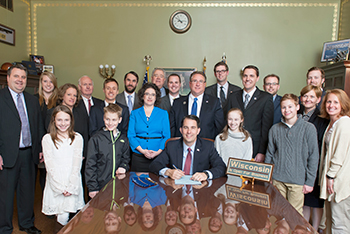 May 4, 2016 – Several years ago, celebrity Bruce Willis sued Apple over the right to bequeath his iTunes music collection to his daughters.
May 4, 2016 – Several years ago, celebrity Bruce Willis sued Apple over the right to bequeath his iTunes music collection to his daughters.
In 2011, a couple in Virginia lost their minor son through his suicide and, as parents, they sought information about his death, and asked Facebook to grant them access to his account. Facebook denied the request, citing their policy that the contents of an account can only be disclosed with the consent of the owner.
In 2012, a beauty queen fell to her death from the 12th floor of an apartment building in England. Her two surviving family members subpoenaed information from Facebook regarding her account, hoping the information would shed light on the circumstances leading up to her death. The court quashed the subpoena, citing Facebook’s protection under the Stored Communications Act not to release the information.
The Bruce Willis story turned out to be fabricated. However, it did shed light on iTunes’ terms of service, which create only a license relationship and renders the iTunes accounts themselves not transferable to another user. The other two stories are factually correct, and stand for the proposition that, again, terms of service coupled with federal laws, inhibit access to accounts without defined consent.
These few examples only touch the surface of what happens to digital property when an individual dies or becomes incompetent. But the recently enacted Wisconsin Digital Property Act is designed to create more certainty with regard to digital assets.

Gov. Scott Walker signed the Wisconsin Digital Property Act into law on March 30, 2016. State Bar Government Relations Coordinator Cale Battles (far left) attended the bill signing, as did attorney Kenneth Barczak (fourth adult from left), chair of the State Bar Real Property, Probate, and Trust Section's Digital Property Committee. Photo by Jay Salvo, Wisconsin Legislature Staff Photographer.
What is Digital Property?
To understand the scope of the problem at hand, consider the following property types encountered daily by most people:
-
email accounts, the content of email messages and other electronic communications protected under federal privacy laws;
-
data in smartphones, tablets, netbooks and computers, and online sales accounts (e.g., eBay, Amazon);
-
online purchasing accounts (e.g., PayPal); online storage and cloud storage accounts (e.g., DropBox, Shutterfly, and Google Drive);
-
webpages, domain names, usernames, blogs, social networking accounts (e.g., Facebook, Twitter, LinkedIn); and
-
intellectual property rights in digital property, to name a few.
Who would be concerned with access to digital property should an original user die or become disabled? In general, any fiduciary, from personal representatives, to guardians and conservators, to agents under powers of attorney, to trustees, would have a need to deal with digital property of the user.
Kenneth P. Barczak (Marquette 1979) is chair of the State Bar Real Property, Probate and Trust section’s Digital Property Committee.
Why is a new law necessary to deal with digital property? One would think that the above fiduciaries, with all of the statutory powers they possess, would have no problem exercising their authority in these areas.
However, this is not the case with the new area of digital property. Among the obstacles to fiduciary access are: usernames and passwords, added security measures such as two-factor identification, encryption issues, inadequate state laws dealing specifically with digital property, and federal laws requiring specific consent of individuals for fiduciary access. But most importantly, provider terms of service agreements, which many times acknowledge only the original user, and not his or her fiduciary, as the contractual owner under the terms of service, create a large barrier to access.
The Uniform Law Commission Delves Into the Issue
In an attempt to resolve unanswered questions arising in this area, the Uniform Law Commission (ULC) held meetings on a national level from 2012 to 2014, working on a Uniform Act in this area. At the culmination of the ULC meetings, the ULC, based upon the work product of the Fiduciary Access to Digital Assets Committee, promulgated the Uniform Fiduciary Access to Digital Assets Act (UFADAA).
UFADAA, as a free-standing law, addressed four different types of fiduciaries: personal representatives of decedents’ estates, guardians or conservators for protected persons, agents acting pursuant to a power of attorney, and trustees.
The ULC approved the UFADAA in July 2014, and it was thereafter introduced in more than 25 states. No state enacted it (other than Delaware). In July 2015, the ULC adopted the Revised Uniform Fiduciary Access to Digital Assets Act (RUFADAA) to address concerns raised during the attempted introductions of UFADAA.
Save the Date: June 21 Webinar Will Cover the New Wisconsin Digital Property Act
State Bar of Wisconsin PINNACLE® is planning a CLE webinar on the Wisconsin Digital Property Act, tentatively scheduled for June 21.
Register now or check the WisBar Marketplace in the coming weeks for more details about the program.
The focus of the RUFADAA places additional emphasis on the estate planning process to establish necessary consent and authorized access parameters to accommodate federal law and contractual terms of services concerns.
The Wisconsin Approach
At the Sept. 27, 2013, board meeting of the State Bar of Wisconsin’s Real Property, Probate and Trust Section (RPPT), the board approved the formation of a Digital Property Committee (the Wisconsin Committee) to follow developments on a national level regarding implementation of state statutory provisions addressing the growing impact of digital property on the estate planning process.
The Wisconsin Committee closely followed the work of the ULC’s Fiduciary Access to Digital Assets Committee, with an observer attending the meetings on behalf of the RPPT board. The consensus of the Wisconsin Committee was to use the RUFADAA as a base and make adjustments as necessary and specific to Wisconsin law.
The Wisconsin Committee also adopted the stand-alone act concept, including all fiduciaries mentioned in the UFADAA. This would not preclude cross-reference to other statutory sections when required.
Representatives of the State Bar’s Elder Law Section, the Intellectual Property and Technology Law Section, and the Registers in Probate Association stayed informed on the Wisconsin Committee’s progress. Wisconsin Committee members reached out to various representatives from other states that were attempting to introduce similar bills, to create a dialogue with these representatives and gauge reactions to any proposed introductions in those states that may have proved helpful to a Wisconsin introduction.
The Wisconsin Committee also examined the RUFADAA in the context of the following concerns: 1) digital property as a definitional term consistent with Wisconsin law; 2) a review of the marital property aspects of digital property; 3) non-probate transfer alternatives; and 4) review of fiduciary liability concerns.
Enactment
In late 2015, several Wisconsin Legislators expressed an interest in introducing a bill in this area. With the assistance of Cale Battles, State Bar lobbyist to the RPPT section, and the cooperation of interested legislators, members of the Wisconsin Committee became involved in drafting a bill, with the added assistance of the Legislative Reference Bureau. Members of the Wisconsin Committee also testified before the respective Assembly and Senate committees with respect to the bill.
The proposed law gained support from several social media providers as well as from the Wisconsin Bankers Association. After passing both houses, the Governor on March 30, 2016, signed the Wisconsin Digital Property Act under 2015 Wisconsin Act 300, comprised of Chapter 711 and with updated inclusions of appropriate cross references to existing statutes. Highlights of the Wisconsin Digital Property Act include:
-
Utilizing the definition of “digital property” throughout the Wisconsin Digital Property Act (vs. the definition of digital asset in the RUFADAA), thus allowing for ease of cross section references to probate, power of attorney, guardianship, conservatorship, trust and marital property statutes. All recognized cross references were included in the bill;
-
Recognition that since both Wisconsin statutes and Wisconsin case law utilize property terminology, enacting a digital property statute would more intuitively enable courts and the bar to synthesize the new law into existing property concepts, and better equip both courts and practitioners to employ precedential constructs when dealing with an enacted statute;
-
Recognition of personal representatives of decedents’ guardians and conservators for protected persons, agents acting pursuant to a power of attorney, and trustees, as fiduciaries under the Wisconsin Digital Property Act;
-
Introduction of the definitional concepts of “catalogue” of electronic communication and “content” of an electronic communication to deal with federal laws impacting fiduciary access to digital property. Fiduciaries must determine the extent to which digital property is covered under those federal law constraints;
-
Inclusion of the definition of an online tool as a construct for employing a three-tier level of priorities for user directions for disclosure of digital property from custodians. Google’s Inactive Account Manager and Facebook’s Legacy Contact are two examples illustrating the concept of an online tool;
-
Establishment of a three-tier priority system of user direction for disclosure of digital property, as established under the RUFADAA, as follows: 1) an online tool; 2) any other governing instrument; and 3) the above directions override a contrary provision in a terms-of-service agreement that does not require the user to act affirmatively and distinctly from the user’s assent to the terms of service;
-
Choice of methods for disclosing digital property by the custodian of that property; and
-
Scope of fiduciary duty and authority under the Wisconsin Digital Property Act.
Application Considerations
Chapter 711 applies to a custodian only if the user resides in this state or resided in this state at the time of the user’s death. Chapter 711 also applies to all of the following: a fiduciary acting under a will or power of attorney executed before, on, or after April 1, 2016; a personal representative acting for a decedent who died before, on, or after April 1, 2016; a guardianship or conservatorship proceeding, whether pending in a court or commenced before, on, or after April 1, 2016; a trustee acting under a trust created before, on, or after April 1, 2016.
Conclusion
With the enactment, the Wisconsin Committee will turn its attention to implementing non-probate transfer documentation consistent with the Wisconsin Digital Property Act for use by practitioners, as well as focusing on any marital property constructs needing to be addressed following implementation.
The opt-in approach to the Wisconsin Digital Property Act allows users to express their intent to grant fiduciary access and disclosure to digital property either through an online tool or through estate planning documents. This, in turn, places a significant focus on the practitioner to educate the user and involve the user in an affirmative planning process.
This educational process will focus on the Wisconsin Digital Property Act itself and will encompass review of technological and contractual issues, including password selection and retention, backup alternatives, establishing digital property inventories, and recognizing terms of service constraints on transfers of digital property.
In that regard, a State Bar of Wisconsin PINNACLE® webinar, scheduled for June 21, 2016, will address the Wisconsin Digital Property Act for attorneys who work in the areas of estate planning, probate, property, and other areas that may be impacted.
The program is still in development, but check WisBar.org's Marketplace in the coming weeks to review the full schedule and to register.
